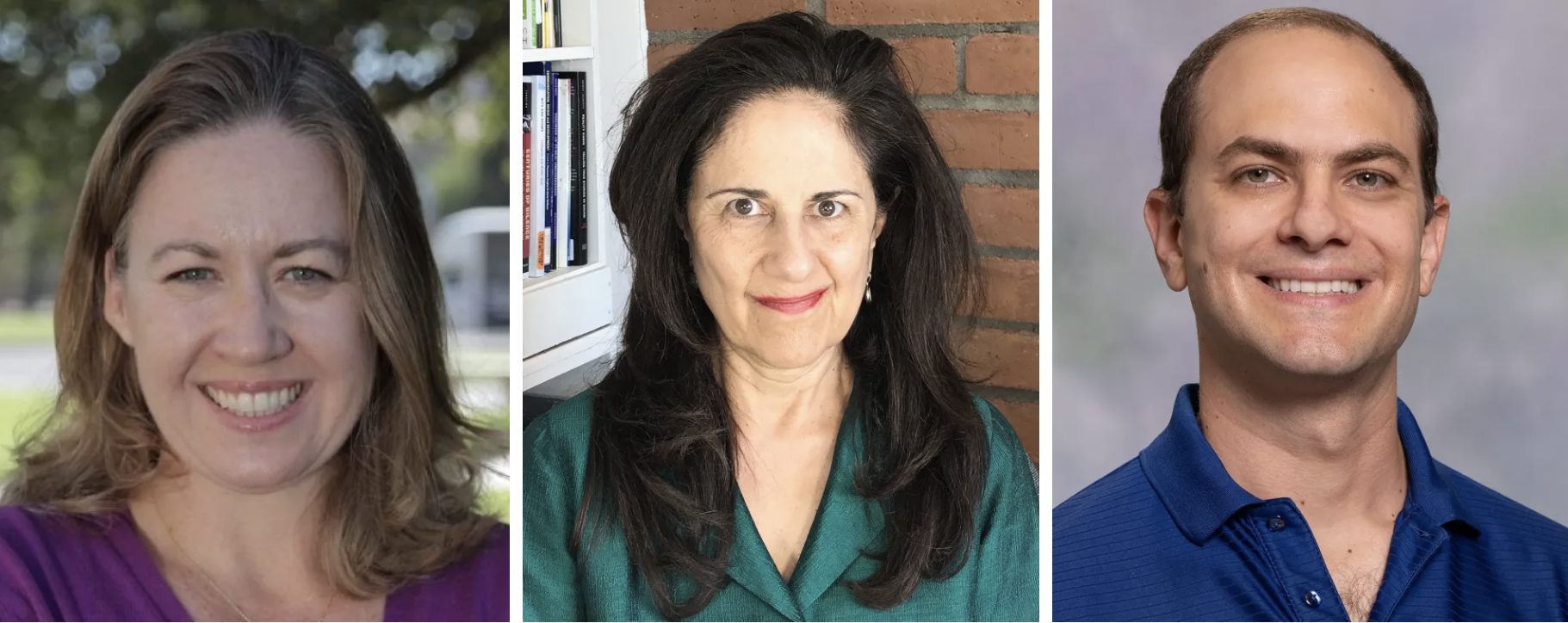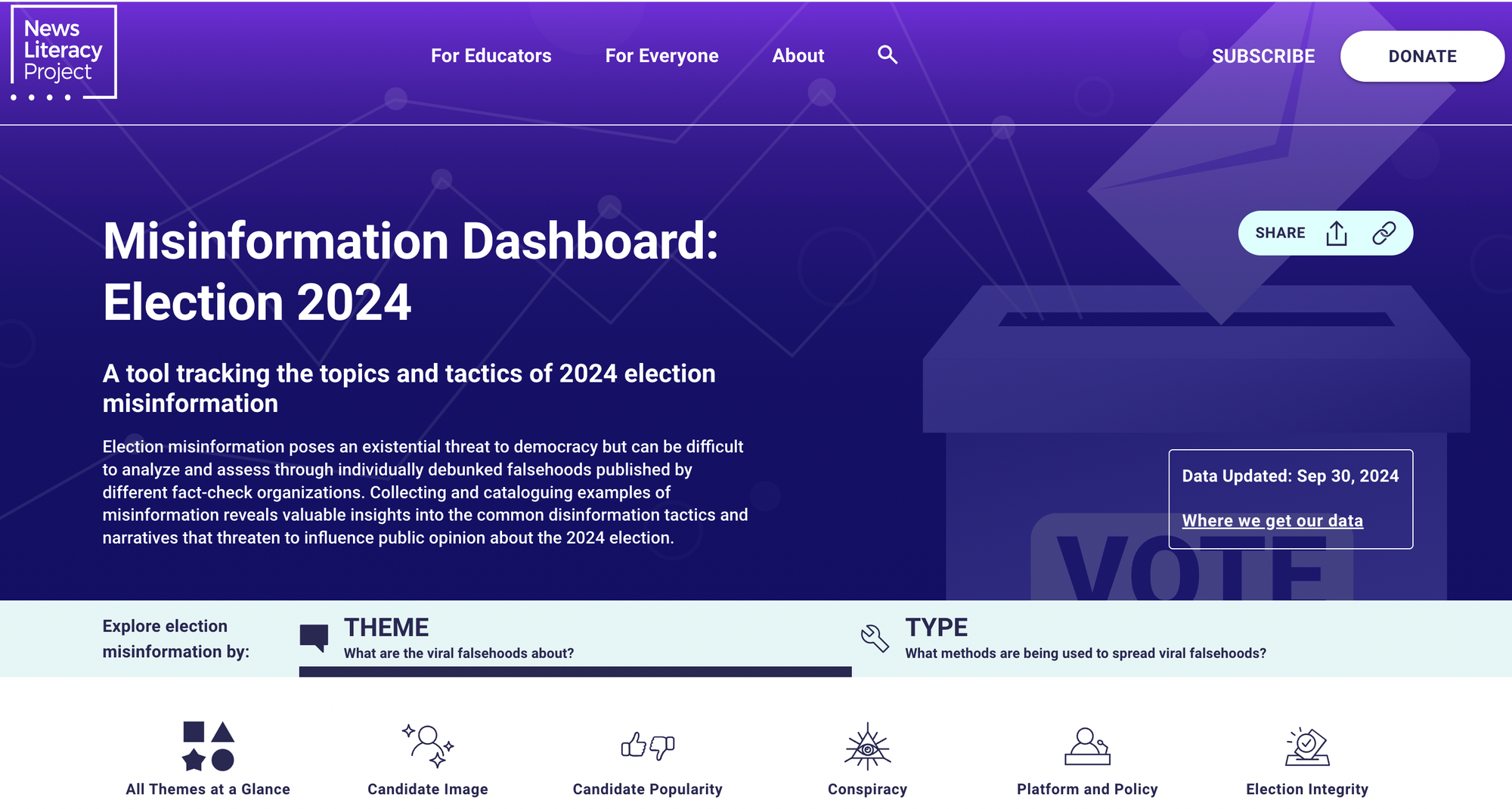Local experts warn about misinformation's impact on elections
During a recent panel hosted by the League of Women Voters of Greater Tucson and Pima County Public Library, experts in the fields of communication, journalism, government and public policy shared common missteps and ways to verify information.

In an era where information is available at your fingertips, the challenge lies not in finding knowledge, but in identifying its credibility.
And with the ballots only a few days away from hitting mailboxes, local experts are working hard to get the word out about the impact of misinformation on elections and provide community members with steps they can take to navigate the challenging media landscape.
During a recent panel hosted by the League of Women Voters of Greater Tucson and Pima County Public Library, experts in the fields of communication, journalism, government and public policy shared common missteps and ways to verify information.
One challenge is overcoming confirmation bias, a tendency to favor information that aligns with a person’s preexisting beliefs, said panelist Kate Kenski, a professor in the University of Arizona’s School of Communication and Government Public Policy. Kenski mentioned a project in which she helped develop video games to train intelligence personnel on recognizing these biases.
"While our game effectively tackles these challenges, there’s a constant struggle between understanding and overconfidence," she said.
People have a tendency to seek stories that confirm their beliefs and label those with opposing views as “stupid” or “evil,” Kenski said. This mindset, which exists on both sides of the political spectrum, can lead to discomfort when faced with contradictory information and plays a big role in spreading misinformation, she said.

Panelist Jeannine Relly, a former journalism professor and associate dean for faculty affairs and inclusion in the College of Social and Behavioral Sciences, emphasized the importance of cross-referencing multiple sources to gain a more balanced view of the news. She introduced the acronym CRAAP to help evaluate the quality of information.
- Currency: Is the information recent and relevant?
- Relevance: How closely does it relate to the topic at hand?
- Authority: Who created the information?
- Accuracy: Are there supporting sources? How reliable are they?
- Purpose: What is the motivation behind the information?
It’s hard to get a clear picture of how pervasive misinformation is. Yotam Schmargad, a social scientist and assistant professor in the School of Government and Public Policy, said private platforms, including WhatsApp and Telegram, make studying the spread of misinformation difficult on a large scale, since they use end-to-end encryption. This limits researchers’ ability to see what information is being shared.
The only reliable way to study misinformation in these environments, he said, is through ethnographic methods, such as gaining access to private groups and observing discussions.
But he warned that provides only a partial view, noting that while public platforms like Facebook and Twitter have allowed for more comprehensive data collection, there has been a decline in misinformation since the years of 2016 and 2020.
Schmargad said that, while conservatives tend to be targeted with misinformation more than liberals, the sharing rate is similar across political lines. He urged attendees to be cautious with unfamiliar news sources, as many fake news outlets are designed to appear legitimate.

There are tools to help people navigate the media landscape. Mathew Landon, an economic development librarian with Pima County, introduced the audience to the News Literacy Project, a nonprofit aimed at equipping students with news literacy skills before they graduate high school.
“This is just one example of a resource online to debunk or find the truth about pieces of information,” he said.
Relly highlighted the importance of using resources like Politifact and NewsGuard to help streamline the fact-checking process. She said well-known outlets such as the Associated Press, Reuters, The Washington Post, and FactCheck.org offer reliable, free fact-checking services.
For those interested in verifying images or videos, Relly pointed to First Draft’s verification toolbox, which lets users input the date and time a photo was taken to gather context, such as checking weather conditions on that date to help identify altered images.
Navigating the world of misinformation requires effort and vigilance, the panelists said. But by using available resources and critical thinking skills, consumers can better equip themselves to detect fact from fiction.
Isabela Gamez is a University of Arizona alum and reporter with Tucson Spotlight. Contact her at gamezi@arizona.edu.



